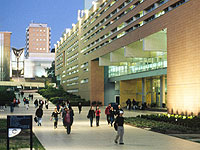|
||||||||||||||||||||||||||||||||||||||||||||
| Ageing and Endings 3 - MFAC2504 | ||||||||||||||||||||||||||||||||||||||||||||

Description Objectives: - By using authentic clinical or practical experiences as the basis for learning, students will build upon their understanding of the specific health issues faced by elders that they established in phase 1. In addition, students will develop understandings of the clinical aspects of illnesses occurring in elders, whilst extending their capabilities in communication with, and physical examination of, patients with specified health issues.
A case-based teaching methodology is employed to link acquisition of clinical capabilities with the learning of mechanisms and principles underlying health and illness. Approximately 60% of available time will be spent in clinical environments associated with the Faculty of Medicine, in which students will encounter patients or health issues relevant to the domain themes. Typical clinical issues encountered will include complex co-morbidity problems in elders, chronic illness and disability, degenerative diseases including arthritis and dementia, rehabilitation, palliative care and cancer medicine, stroke, vascular disease, and terminal illness. These experiences will be augmented by a range of tutorials, laboratory classes, and face-to-face and/or electronic resources. Assessment will include submission of two project/assignment reports, demonstrating integration/ correlation of prior and current learning with linkage to basic biomedical sciences; medical imaging and diagnostic tests; ethics; or population health issues. In addition, the student's clinical performance during the module will be graded as satisfactory/unsatisfactory. |
||||||||||||||||||||||||||||||||||||||||||||


